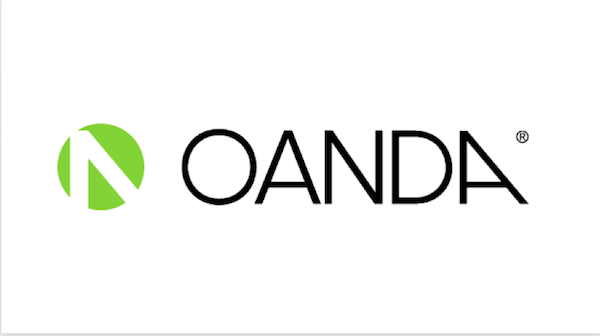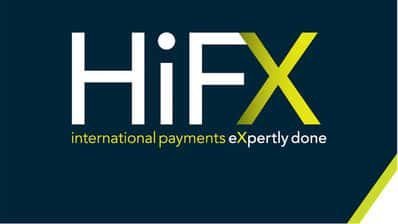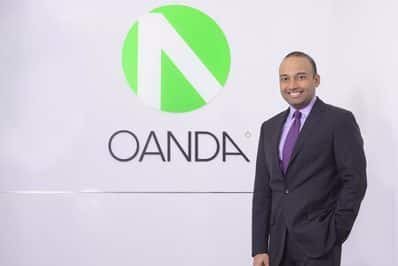Our CEO Daniel Webber recently sat down with Vatsa Narasimha, the CEO of Oanda, to discuss the world of international payments. At a time when the industry is abuzz with speculation about the potential for profit from payments- Vatsa could not be more optimistic about the industry. Read on to learn why.
Oanda’s Culture - a Fintech Fit
From a people and culture perspective, I appreciate the values of Oanda, particularly surrounding how it was founded. Oanda was founded in 1996 and was done so because there was a lack of transparency around what defines a good FX rate. Oanda was founded in part on a desire to be fair, a desire to be transparent, and the desire to disrupt the existing status quo. Those desires have stayed in the organization through its twenty-one year history, and that was something that resonated a lot with me.
I think we still have the same enthusiasm as when we started. While our core business is trading in FX, we have increasingly become a multi asset trading company and our rates business has grown exponentially in the last few years. I am very proud of what our team has accomplished.
We’ve now launched the payments division of our business. We are building towards being that trusted brand in global currencies, be it to a retail customer or an institution that wants to trade currencies or other similar assets through us. Our goal is to be the trusted solution in a variety of situations, for the retail or corporate customer that wants to transfer money cross border, or even just the corporate client who wants accurate, easy-to-consume FX data for a variety of their applications.
Problem Solving for CFOs
One of my prior roles at Oanda was as CFO of the company. As you talk to other CFOs and treasurers, you realize that there’s a very strong need for getting accurate FX data for your bookkeeping purposes. A CFO needs accurate FX data for any single transaction that a company makes.
Companies are increasingly becoming global. Many companies have multiple entities; one in the US, one in London, one in some other part of the world. Many of these companies are trying to bookkeep in their local currency, but then their parent entity has to manage everything in the USD or GBP or wherever their headquarters are located.
Making sure that those translations are accurate with no misstatements requires accurate FX data. This is why even the Big 4 accounting firms in the US use Oanda’s FX data as they look through audits. I am very excited about where we are. Three and a half years into the company, I feel justified about my excitement and it still continues.

The Journey To International Payments
A lot of things at Oanda happen because we identify a client need.
It simply comes down to that. We are a tech company, we can build different technologies and we can build different solutions. Our primary business is trading, which is primarily retail clients, some institutional clients, small hedge funds and some corporations that trade on our platform.
We have a lot of corporate clients who consume our data, so we asked them, what else are you looking for in the FX space? The logical answer was - I need two things - one is, I need a cross border payment solution, either very simply to transfer money between different entities, such as for a US company with a huge European employee base that needs to move money for payroll expenses and things like that. And the other one is doing business transactions, accepting payments from clients, paying vendors, all that kind of stuff.
Particularly in the SMEs space, we found our clients were very happy with our data. They were looking at some of the rates that we provide on the trading platform, but trading is different because you’re not doing cross border settlement. But clients would come to us and say, can you help us with cross border payments and not just the FX rates. Other would say that because some of our payments are not so predictable, can you help us with the hedging solution?
The Western Union White Label Solution - A Good Fit
As we thought about our clients’ desires for payments, we needed to get to a point where you have the reach and the infrastructure. You can’t tell people, “Oh, I’ll help you with your pound and euro conversion to dollars, but I can’t help you with other currencies.”
As we talked to a variety of potential partners, we landed on Western Union for multiple reasons. One is just their global brand and reach, so that infrastructure that they have, and the different locations that they can get to is both desirable for retail clients that come to our website looking for currency information, and knowledge on currencies but also the reach for our corporate clients. We didn’t want to limit our corporate clients with just a certain part of the offering. Western Union’s reach was a large piece of our decision. The other piece, as we started working with Western Union, was the technology they’re putting in place, both for retail clients but also for corporate clients. One of the things that we are working with our corporate clients on is working with Western Union on a hedging solution.
A lot of partnerships come down to trust and culture. So we examined the two companies, Western Union is very different than Oanda. They are one hundred plus years old, they have a global presence and things like that. But I think that as I talked to my partners at Western Union, it became clear that their desire is to also serve the clients and transform how they go through foreign exchange transaction or cross border payments. That was the last thing that brought it all together - saying let’s take the front-end knowledge clients to Oanda, combine that with the infrastructure of Western Union. And we see other opportunities in the long term as we also have because of our trading platform, we have deep currency liquidity, so how can we use that?
You can make money in Payments
As you continue to see price erosion happening in this market, I think, particularly with payments, customers flows tend to be unidimensional. A higher proportion of flows go from US people in the remittance business compared to higher-end cross border payments. To use that as an example, the remittance business sees a lot from the US to India or the US to Philippines, it’s unidirectional, so mapping it is very difficult.
Because we have a trading platform where people are making trades on there for pure risk management, trading, speculation and investment purposes - is there a way for us to deepen that partnership? We can take a partner like Western Union, who has the infrastructure, and add Oanda which has the front end, Oanda gives us the acquisition engine people are already coming to us for our currency converter and our currency information. So if you put all of that together, we think there’s an exciting possibility there, and that’s what we are building towards.
Oanda’s Transparency Created a Natural Need for Payments
I think client access to Oanda’s rates is just one part of our most recent development into the payments space. Typically, if you think about how a very large corporate, a Fortune 500 type corporate manages payments, they have a dedicated treasury team that is very sophisticated and they have direct line access into the deep liquidity of banks. The level of service they get is unmatched.
If you look at the other end of the spectrum, which is a mom and pop small company, and looking to get that level of service, most likely they have a bank account with their local bank and the local bank then has to work with the bigger banks, there are a bunch of layers in their customer service, and the quality of service and the quality of information is not there. Customers are not just concerned with the pricing element, there’s also the question of easy solutions.
Customers want online solutions, they don’t want to have to call someone, but they want to be comfortable with the rates they are getting. It may not be as competitive as a really large organization, but still it is not something that they would be paying at a money transfer counter in an airport. That is where we were seeing it, they were saying, look you’re giving us accurate data. In the space with which we are most active, which is a mid-sized corporation, they’re saying, look we have interaction with regional banks, but we’re still getting accurate rates from you, and they’re not necessarily a lot of deep banking relationships that they have where they can unbundle who they work with on what. And their teams are also looking for, or are just starting to put into place ERP systems, so they want rates that come into that, they want an ability to transact online.
If you look at our partnership with Western Union, they have notifications about rates dropping. Clients are looking for information in an easily consumable manner. And that’s the direction that we are going in, which is how do we make these transactions more automated and more user friendly. And if you look at our platform and the time period we have operated, FX has become more electronic on the trading side. How can we bring some of that know-how into this partnership, and that’s what Western Union values on our side. The sweet spot for us is really the small to mid sized corporations, corporations that are growing in their international presence.

On Oanda’s Customer Acquisition and How it Compares to XE
Because of our twenty-plus year history in currency rates, tens of millions of people come to our website every month looking for accurate currency information. That is the first place most people know Oanda from.
If you talk to people who are into trading, they know Oanda and trading. But friends of mine who are not into currency trading, they know Oanda because of our currency converter and our accurate currency data and their ability to consume that data. So that trusted brand, the history of doing that has been a big driver of how we are getting clients to come to us. Through these avenues we have both retail and corporate clients that come to you us.
XE has done a good job in this space, as demonstrated by the acquisition of XE that happened 18 months ago, but there’s one key difference between how, particularly corporate clients view Oanda’s data. Particularly if you’re consuming our rates on API bases and things like that, accuracy of that information is very important to you. And our data is based on transactive values on our platform which the big 4 accounting firms, Google, Alibaba, the International Air authority - they all consume this data. They do that because of the quality of our data, the platinum standard in that space, because we are not offering indicative rates, we are offering actual transactive rates. When people talk to their auditors at the end of the year and they say they are using Oanda data, people understand that there is a certain degree of sophistication, they know that it’s a trusted source where the data is coming from. That is a big differentiator for us.
This is a competitive space, but we think our differentiator is going to be corporations. Corporations have different needs - one of the needs we satisfy better than anyone else is the trusted data provider. On top of that, what other services can we offer? We are building analytics. Because we have a historical database of 20 plus years of FX data that is just incredible. And so based on that, later this year we will be starting to launch some of our analytics offerings, and we can talk about that closer to the launch date.
How Data Can Help Problem Solve
If you really think about it from a CFO or treasurer’s perspective, particularly at an SME, they don’t have the capacity to have a large treasury team, but they still face the same questions that a large organization faces.
- I have a particular exposure, every month I get payments from a particular customer or every month I make a payment to a vendor, just because that works like clockwork. What’s my exposure?
- If I look at it over the course of the last 12 or 18 months in some currencies, effectively my dollar payment has been from here, all the way to here.
- How do I lock in some of those rates? Obviously, no one can predict the future, but how do I understand what the different scenarios are?
- How can I hedge some of that exposure and live with a level of exposure that I am comfortable with?
- If the range is going to be this, how do I mute that range?
Those are the kind of questions CFOs and Treasurers of SMEs are asking, and at Oanda we are starting to work on launching some products, hopefully at the end of the year, that will start to help our SME clients. Through this we will combine data providing, historical data, to help clients understand what the future will look like and then help hedge that exposure.
It’s Definitely Not Over for Banks
Banks will continue to play a role. When I think about it, certain large corporations, that end - banks will definitely continue to play a role. They are a trusted partner, from my perspective, CFOs of large organizations have very deep relationships with banks and work to serve them. There’s definitely still an opportunity there for banks.
I think what you see, sort of the emerging players, even people such as Oanda, we offer a model that is easier for consumption for the SMEs, and this is happening in other spaces, not just in FX, and I think that what you will see, somewhere in there, there will be collaboration between bank and fintech/nonbank players. Even our trading platform, for example, as a white label is used by HSBC to offer to their retail clients in the Hong Kong area. So there is opportunity here, I would say, one end of the spectrum potentially the banks will continue to serve. At the other end of the spectrum, it’s difficult for the banks to serve at the same level of high depth service - the SMEs space. And then somewhere in the middle maybe there’s an opportunity for partnerships.
Moving from Consulting to Money Transfer - a Natural Transition
When I was at the Boston Consulting Group, in 2012 I was on a team that worked with Oanda on strategy. My educational background was in engineering and technology, but a lot of my work at Boston Consulting Group focused on working with financial institutions. Even back in 2011-2012, Oanda sat very nicely at the intersection which is now, in 2017, popularly known as fintech.
Oanda were trying to use technology to disrupt financial markets. I looked at the company’s history and the talent pool we had at the company, assets like Oanda’s FX data, Oanda’s FX rates and as I was considering a career move out of consulting and more into industrial and operating growth - Oanda made perfect sense to me. Working at Oanda brought me back into that technology space with the industrial knowledge of what I had spent the previous few years in consulting looking at.

Mike Massaro, Flywire CEO Interview - On Money Transfers and Receivable Payments

Exclusive Interview with Global Reach Partners CEO Mark Smith-Halvorsen







